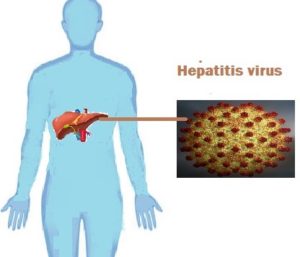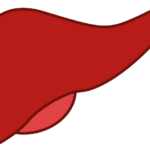Hepatitis : Things you should know. Create awareness about the disease and its causes, prevention, diagnosis and treatment. Just like every year, World Hepatitis Day will be marked on July 28th to raise awareness about the disease and its causes, prevention, diagnosis and treatment. According to WHO, 325 million people across the globe are affected by Hepatitis B and C. In fact, 60% cases of liver cancer are caused by late diagnosis and treatment. This is why the theme of World Hepatitis Day 2018 is “Test. Treat. Hepatitis.”
What is Hepatitis?


It is an inflammation of the liver, which is usually caused by viruses (Hepatitis A, B, C, D, E), drugs (community alternative medicine or over the counter drugs), alcohol and toxins.
The liver is a vital organ, which takes part in detoxification, production of proteins, coagulation factors and metabolism of carbohydrates, proteins and fats. Naturally, a human body cannot function properly with a damaged liver. Hepatitis viruses are the most common culprits for cause. Hepatitis A is mostly found in children, whereas Hepatitis B, C and E are more common in middle and elderly aged individuals.
Modes of transmission:
Type A and E spread through water and food. On the other hand, Type B, C and D are transmitted through unsterilized needles, blood contact and unprotected sex. However, its virus doesn’t spread via causal contacts like hugging or kissing.
Symptoms
Type B and C may not show any symptoms for a long period of time, making it difficult for a clear diagnosis. Many patients are diagnosed incidentally during screening in phases of chronic Hepatitis (B and C) or at its terminal complications such as cirrhosis of liver/ liver cancer. However, most of it presents with the prodromal symptoms like fever, headache, myalgia, joint pains and jaundice.
Chronic Liver diseases (cirrhosis/ liver cancer) are the most common consequences of B and C, alcohol manifesting an abdominal distention (ascites), swelling of feet, blood vomiting, altered sensorium etc.
Diagnosis:
Suspected patients undergo a blood test to detect liver injury in the form of a liver function test and coagulation profile. However, the type of viruses can only be detected using specific serological tests. Ultrasound abdomen is also done to rule out any chronic liver damage and its complications.
Prevention:


1. Avoid eating in unhygienic condition
2. Avoid needle sharing
3. Follow safe sex practice
4. Avoid needle stick injuries
5. Avoid consumption of alcohol
6. Stop using over the counter medication
Vaccination:
Vaccination is the most important step in the prevention of A and B type. Three injections at the timely intervals (0, 1 and at 6 months) with booster doses generally assure safety for the lifetime.
Treatment:
Most of the acute viral Hepatitis are self-limiting and just require supportive medications. Only a few cases of acute Hepatitis B require antivirals.
However, in case of chronic, where the body is unable to clear the Hepatitis B (10% to 20 %) and Hepatitis C (80% to 90%) viruses, treatment with antiviral drugs is necessary to prevent further liver damage and progression to liver cancer. With the currently available antivirals, we can control this disease from spreading.
Additionally, states across India need to follow and implement a special health care program which has been implemented by Punjab Government in treating.


Dr Sharath Kote. G.S
Sparsh Super Speciality Hospital
Tumkur Road, Yeshwantpur,
Bengaluru 560022
Phone: 080 61 222 000/ 080 4910 8000











